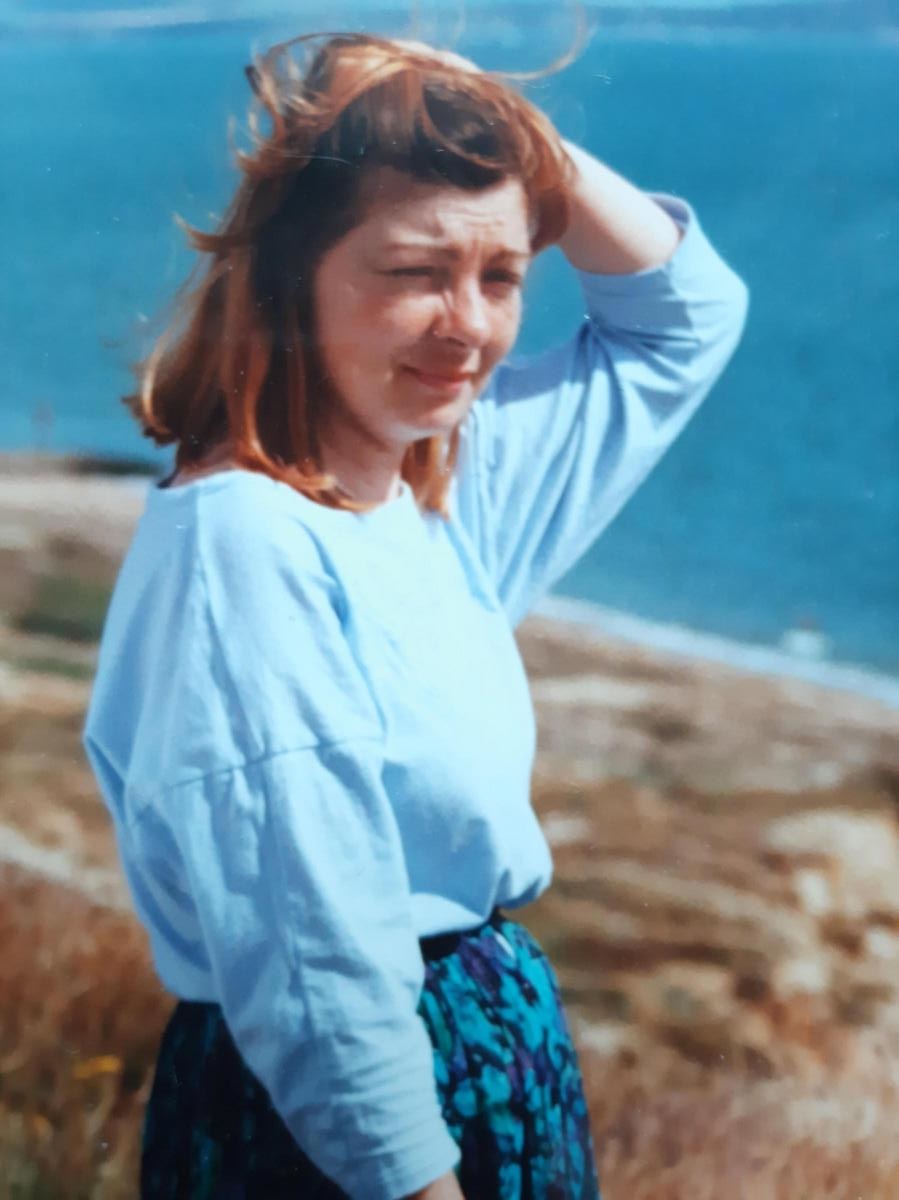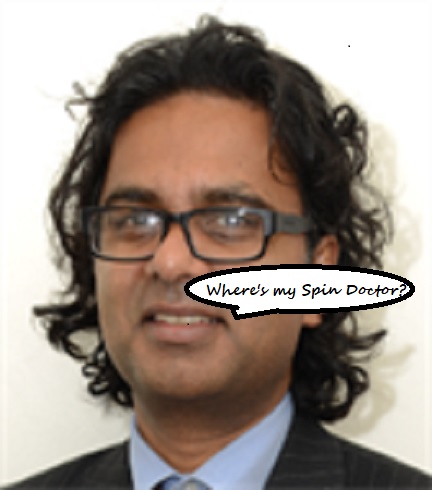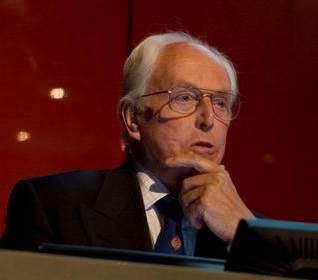
Dr Bill Kirkup CBE, whose evidence to the Pascoe Investigation into Southern Health NHS Foundation Trust was reported here, was followed by two more equally authoritatve and credible independent witnesses, Dr Josephine Ocloo and Keith Conradi.

Senior Researcher & Health Foundation Improvement Science Fellow at King’s College, London, Dr Ocloo became involved in patient safety after her daughter died following a medical failure.
This gives her a high profile role as a patient representative and patient safety researcher. She completed a PhD in 2008 on medical harm from the viewpoint of those directly affected by safety incidents. She emphasised the, “Awful grief” experienced by bereaved families, subsequent betrayal by the NHS, causing, “Further grief.” She described this as,
“The dark side of the NHS” [adding]
“This will keep happening until it the NHS is fatally wounded.”
Will the Panel identify the irony in Dr Ocloo’s comments? The families’ original withdrawal statement and their refusal to re-engage, demonstrate that the Pascoe Investigation is yet another act of betrayal – this time by NHSEngland/Improvement. Read more here→
 Dr Ocloo used the analogy, ‘You can’t build anything on sand.’ The foundations must be right.
Dr Ocloo used the analogy, ‘You can’t build anything on sand.’ The foundations must be right.
We summarise some of her insightful views, as noted:
- The Duty of Candour will not work without remedying the root cause – a closed culture with no transparency.
- Defensiveness and unwillingness to ‘own up’ prevents openness and transparency too.
- There is no commitment in the NHS to Article 2 (The Right to Life); families are seen as the problem. Trusts need to own up and settle.
- There is no commitment to openness and transparency – starting with the leadership.
- There needs to be the right balance between accountability and learning – this is essential in a democratic society.
- Trusts are large corporate bodies with many opportunities and resources to cover up their failings.
- The architecture of governors, non-execututive directors (“NEDs”) and Executive Directors is driving the problem. NEDs often lack true independence; governors have little influence and are unable to challenge effectively.
- Patient/public engagement has been mooted since 1970. It doesn’t work; it excludes the most vulnerable, including Mental Health and Learning Disability patients.
- Complaints are not investigated independently: the PHSO is ineffectual. Families are let down by everyone; excluded from investigations; and treated, “Brutally.”
- Recent and old cases are remarkably similar.
- There should be statutory complaints regulations with investigators completely and truly independent of the Trust, including laypeople from outside the NHS.
- There needs to be a cultural shift in Regulatory bodies. All are perceived by the public as ineffective – endless criticisms of them are not addressed.
- Laypeople are not involved sufficiently in all areas the NHS, including investigations.
- Service users, families and carers have no-one to turn to for robust assistance.
- Has heard of a ‘cultural shift’ but there is no genuine contrition. Culture can only be judged by service users/families – their perception is key.
- Harmed patients are not considered important but trusts cannot learn without them. Some families are prepared to ‘cross the barrier’.
- In 2016, circa. 80 bereaved family members attended a meeting about a proposed Learning Disabilities Mortality Review (LeDeR) Programme¹. There is no evidence of any recommendations being implemented; 5 years later, “LeDer has stalled.”
- In 2017, the Care Quality Commission said there was no organisation running complaints systems properly: doesn’t think there’s been much progress since.
- Even she [a patient representative and patient safety researcher] struggles to be involved at a senior level.
- Ideally investigators of serious incidents should be completely independent of Trusts and the NHS. This should include natural deaths to check nothing is being covered up.
- Families should have access to legal advice to overcome an imbalance of power. One side has legal and medical experts; grieving families have nothing.
- Patient safety issues are not opened out from the Trust. Healthwatch might give public input but have no remit to hold Trusts to account.
- There may be salvation in Integrated Care Systems if there is family and patient representation.
- There should be diversity of investigators², including lay voices, and a medical expert.
- The “Just Culture” currently is geared to staff interests rather than patients/families.
- It is not a psychologically safe system – ‘the Trust is always right‘. Staff who speak up are gaslighted and treated brutally.
- Children, adolescents, and elderly often get missed out. This is little support during investigations – independent advocacy does not work.
Dr Ocloo feels the most fundamental issue is that investigators must tell families: why an incident has occurred; if it was preventable and; who is accountable. She recommended Trusts should look at the commercial world to learn about investigations. We know many isues at Southern Health remain unresolved – the bereaved families’ issues for example.
She recommended a ‘Truth Commission‘, provided that both parties are willing to engage in good faith – as in the South African ‘Truth and Reconciliation Commission.’

Chief Inspector of the Air Accident Investigations Branch (“AAIB”) (2010 – 2016), Keith has been a professional pilot for 40 years. He is current Chief Investigator of the Healthcare Safety Investigation Branch (“HSIB”).
Keith made a stark comparison between aviation industry’s attitude to safety incidents and that of the NHS; it became clear when he became founding member of HSIB in 2016.
- There is evidence that NHS investigations attempt to avoid liability. The AAIB assumes people come in to do a good job and do not to blame individuals for honest mistakes.
- There should be a culture balance between a learning culture and accountability. The latter usually is carried out by regulators.
- A single regulator – Civil Aviation Authority – ensures the whole aviation industry meets the highest safety standards. Accountability in the NHS is too complex and fragmented with too many regulators and no straight line of accountability.
- International Air Transport Association (“IATA”) is a powerful, unified and experienced voice supporting and promoting the interests of aviation worldwide, and setting overall standards for members. There is nothing similar in healthcare – even in UK.
Notwithstanding the importance of a single national regulator, Keith emphasised that a strong and accountable Board is essential in large Trusts. The most successful are where Board Directors show a keen interest in safety incidents and complaints.
During his time at the AAIB, Keith felt easyJet was the best performer. He credited the CEO, Dame Carolyn McCall, DBE for taking a personal interest in all safety incidents.
 It is no coincidence that under her leadership easyJet achieved record passenger numbers and record profits.
It is no coincidence that under her leadership easyJet achieved record passenger numbers and record profits.
In 2013, Flight Global gave Carolyn the Airline Business ‘Airline Strategy Award for Low Cost leadership’.
Who said Lean Management, cost-saving and safety are mutually exclusive terms?
Interestingly, just as the panel asked Dr Kirkup if his experience clouded his judgement of the NHS overall, a Panel member questioned the validity of comparing the aviation and healthcare sectors by claiming that healthcare is far more complicated.
We beg to disagree – if there is a serious incident involving a Boeing 747, the aircraft (with six million parts), crew, airline, manufacturer, air traffic control, airport, cargo, check-in staff, ground handlers, meteorologists, engineers (and so on ad finitum) all are considered as possible causes. Investigating, for example, deaths by ligature, is simple in comparison.
We summarise some of Keith’s other views, as noted but in no particular order:
- Families want a true account of what happened and accountability; they don’t want repeated mistakes. A separate organisation should hold Trusts accountable.
- In investingating complaints, a current employee of a Trust cannot be independent. There are huge issues with perception, which are very difficult to overcome.
- Leadership of the investigation is key – one can be a good leader without being a safety expert. The leader does not have to be from the healthcare sector.
- Local investigators need better training. At HSIB, new investigators do 3-weeks’ intensive classroom training before shadowing an experienced investigator. Then, they are allocated to a team but remain accompanied until judged sufficiently competent.
- Family engagement essentail: every time. It is key to keep them in picture and prvide key information. They know more about the culture of organisation and provide invaluable and insight on improvement.
- Families should always get opportunity at face-to-face meetings to comment on draft reports. If they disagree, both views must put both into the report.
- On Duty of Candour, it is sad there has to be a legal obligation in the NHS:
“Honesty and family involvement are essential as human nature.”
- Overall Compliance with the Duty of Candour is the responsibility of the Board, which should take immediate action on breaches.
- The HSIB has been a slight improvement in culture but only where it has carried out investigationes. There is talk about a just culture – but only relating to staff safety.
- An accountable Board is better for local complaints. A health and safety expert should sit on the Board; the CEO should sit on the Trust’s Quality & Saftey Committee; and there should not be so many on the Committee that it dilutes responsibility.
- The Board should check very early that action plans have been implemented. This cannot be effective if complaints are not taken up to Board level. [Southern Health has just divisionalised complaints, shifting responsibility farther away from the Board.]
Keith described the HSIB’ limitations as a, “Small agency” on a non-statutory basis, with funding of £4.5m and 45 employees. The HSIB is placed in NHSE/I but they have no say in what the HSIB does except, for example in planning, resources, and personnel services. NHSE/I can allocate additional resources for special projects.
We would that, if NHSE/I allocates HSIB’s funding, they have significant control over what HSIB can achieve. We believe HSIB should be put on an independent statutory basis and allocated significantly increased funding. Keith would not be averse to increasing the HSIB’s role, perhaps with a regional team and a register of trained, accredited independent investigators for Trusts to choose from. CRASH says, “Bring it on!”
We make no apology for this post being lengthy and staid – the evidence of Dr Kirkup, Dr Ocloo and Keith Conradi is key. It is for the Panel to determine how closely Southern Health meets their requirements and thereby demonstrate its true independence.
In memory of all Southern Health’s patients, whose lives have been lost. We can only hope.

And it seems to me you lived your life
Like a candle in the wind
Never fading with the sunset
When the rain set in
And your footsteps will always fall here
Along England’s greenest hills
Your candle’s burned out long before
Your legend ever will.4
Footnotes:
¹ LeDer was the world’s first national review of deaths of people with learning disabilities. Commissioned after the findings of the ‘Confidential Inquiry into premature deaths of people with learning disabilities from 2010-2013’, the Mazars Report on deaths of learning disability and mental health patients under the care of Southern Health Trust re-emphasised the importance of the programme. Read more here→
² Diversity issues at Southern Health are not limited to the 9 protected characteristics. In practice, they engage only with compliant customers and reject those with the knowledge and management expertise to identify improvement opportunities and assist implementation.
³ Elton John, Bernie Taupin [1997]




 Customer Involvement
Customer Involvement 






 Employed by WHCCG since 2011 so ideal for the Panel to question about the supervision structure in place since 2011 as per the TORs. They failed to do so after Dr Durkin’s intervention.
Employed by WHCCG since 2011 so ideal for the Panel to question about the supervision structure in place since 2011 as per the TORs. They failed to do so after Dr Durkin’s intervention. Joining 9 months ago, Amelia made a refreshing change – a Southern Health official with genuine enthusiasm for her role; keen to make improvements; and with an impressive grasp of the
Joining 9 months ago, Amelia made a refreshing change – a Southern Health official with genuine enthusiasm for her role; keen to make improvements; and with an impressive grasp of the  At a Board Meeting on 4 December 2018, CRASH suggsted the Trust should adopt two sections from the
At a Board Meeting on 4 December 2018, CRASH suggsted the Trust should adopt two sections from the
 Even allowing for her disability, if Southern Health’s Board truly believes this attitude and modus operandi will encourage service users, families, carers and staff to speak up truthfully, they are sadly mistaken – living in
Even allowing for her disability, if Southern Health’s Board truly believes this attitude and modus operandi will encourage service users, families, carers and staff to speak up truthfully, they are sadly mistaken – living in
 Firstly, there were positive undertakings from
Firstly, there were positive undertakings from 


















